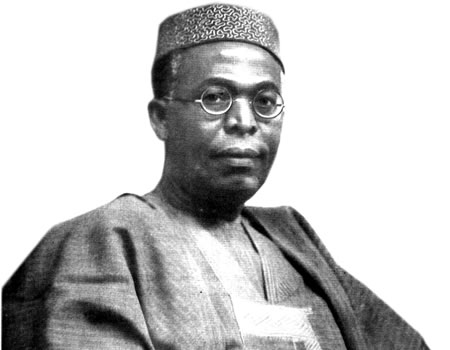Political speeches have always been memorable in shaping a nation’s history. Several speeches have left an indelible mark on its trajectory in Nigeria, a country known for its rich political landscape and diverse cultures. From calls for independence to rallying cries for change, these speeches have resonated with the masses, inspiring movements and influencing the nation’s political landscape. This article delves into the top five most memorable political speeches in Nigerian history, examining their historical context, impact, and enduring significance.
1. Nnamdi Azikiwe’s “Let My People Go” Speech
Nnamdi Azikiwe, a charismatic leader and a prominent figure in Nigeria’s struggle for independence, delivered his iconic “Let My People Go” speech in the 1940s. Azikiwe’s eloquent speech called for freedom and self-determination as Nigeria grappled with colonial rule. His address highlighted the unjust treatment of Nigerians under colonial rule and emphasized the need for a united effort to gain independence.
Key Points and Memorable Quotes:
- “We demand the right to govern ourselves, to shape our destiny.”
- Azikiwe’s call for unity among diverse ethnic groups in Nigeria.
- His vision for a united, independent Nigeria.
Impact and Legacy:
Azikiwe’s speech played a pivotal role in galvanizing the Nigerian people toward the goal of independence. His powerful words resonated with the masses and fostered a sense of national identity and unity. The speech is remembered as a catalyst for the eventual liberation of Nigeria from colonial rule.
2. Obafemi Awolowo’s “Awoism” Ideology Speech
Obafemi Awolowo, a revered Nigerian nationalist, is known for his influential “Awoism” ideology. Awolowo’s groundbreaking speech outlined his vision of socio-economic development and equality for all Nigerians. He emphasized the importance of education, healthcare, and equitable distribution of resources as foundational principles of his ideology.
Key Components of “Awoism”:
- Educational Advancement: Awolowo’s call for free and quality education for all Nigerians.
- Healthcare Accessibility: His advocacy for accessible healthcare services.
- Rural Development: Focus on rural infrastructure and agriculture.
Impact and Enduring Effects:
Awolowo’s speech laid the groundwork for policies that prioritized education, healthcare, and rural development in Nigeria. His ideology continues to influence debates on the country’s governance, social welfare, and economic development.
3. Chinua Achebe’s “The Trouble with Nigeria” Address
Renowned author Chinua Achebe turned his literary prowess to the realm of politics with his thought-provoking speech, “The Trouble with Nigeria.” Achebe critically examined the nation’s challenges in this address, from corruption to ineffective leadership. He lamented the decline in moral values and the lack of accountability among Nigeria’s political elite.
Issues Highlighted by Achebe:
- Corruption: Achebe’s condemnation of corruption as a pervasive problem.
- Leadership Crisis: His critique of the nation’s leadership and governance.
- Moral Decay: Addressing the erosion of ethical values in Nigerian society.
Relevance Today:
Achebe’s speech remains highly relevant as Nigeria grapples with issues of corruption and leadership. His observations resonate as the nation strives for transparent and accountable governance.
4. Goodluck Jonathan’s “I Had No Shoes” Speech
Goodluck Jonathan’s emotionally charged speech, “I Had No Shoes,” provided a glimpse into his humble beginnings and personal journey. The speech recounted his upbringing in poverty and his challenges as a child without shoes. This narrative aimed to connect with the masses and portray Jonathan as a relatable leader.
Emotional Appeal and Impact:
- Jonathan’s recounting of his childhood struggles resonated with the public.
- The speech aimed to humanize Jonathan and connect him with ordinary Nigerians.
- It influenced public perception and added a personal touch to his political narrative.
Long-term Implications:
Jonathan’s speech set a precedent for political leaders to share personal stories to connect with the masses. The emotional appeal strategy continues to be employed by politicians aiming to establish a relatable image.
5. Muhammadu Buhari’s Inaugural Address
Muhammadu Buhari’s inaugural address as the President of Nigeria marked a turning point in the nation’s history. His speech outlined his commitment to fighting corruption, addressing security challenges, and promoting good governance. Buhari’s address set high expectations for his presidency and captured the nation’s attention.
Key Points of the Inaugural Address:
- Buhari’s commitment to tackling corruption and improving governance.
- Addressing security challenges, including insurgency and terrorism.
- Promoting accountability and transparency in government.
Impact and Political Trajectory:
Buhari’s speech established a roadmap for his presidency. It underscored his priorities and set the tone for his governance style. The address continues to be referenced as citizens evaluate his leadership and policy outcomes.
Conclusion
These top five political speeches have left an indelible mark on Nigeria’s history. From advocating for independence to addressing contemporary challenges, these orations have influenced public sentiment, policy decisions, and the nation’s overall development. They showcase the power of eloquence, the importance of relatability, and the enduring resonance of ideas that shape a nation. As Nigeria continues to navigate its political landscape, these speeches are reminders of the potential impact of effective political communication.
“In politics, the spoken word can inspire, unite, and drive change.”
Click to watch our video of the week
Discover more from EkoHotBlog
Subscribe to get the latest posts to your email.
Advertise or Publish a Story on EkoHot Blog:
Kindly contact us at [email protected]. Breaking stories should be sent to the above email and substantiated with pictorial evidence.
Citizen journalists will receive a token as data incentive.
Call or Whatsapp: 0803 561 7233, 0703 414 5611

















